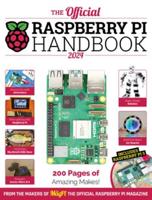Publisher's Synopsis
Many professionals and students in engineering, science, business, and other application fields need to develop Windows-based and web-enabled information systems to store and use data for decision support, without help from professional programmers. However, few books are available to train professionals and students who are not professional programmers to develop these information systems. Developing Windows-Based and Web-Enabled Information Systems fills this gap, providing a self-contained, easy-to-understand, and well-illustrated text that explores current concepts, methods, and software tools for developing Windows-based and web-enabled information systems.
Written in an easily accessible style, the book details current concepts, methods, and software tools for Windows-based and web-enabled information systems that store and use data. It is self-contained with easy-to-understand small examples to walk through concepts and implementation details along with large-scale case studies. The book describes data modeling methods including entity-relationship modeling, relational modeling and normalization, and object-oriented data modeling, to develop data models of a database. The author covers how to use software tools in the Microsoft application development environment, including Microsoft Access, MySQL, SQL, Visual Studio, Visual Basic, VBA, HTML, and XML, to implement databases and develop Windows-based and web-enabled applications with the database, graphical user interface, and program components.
The book takes you through the entire process of developing a computer and network application for an information system, highlighting concepts and operation details. In each chapter, small data examples are used to manually walk through concepts and operational details. These features and more give you the conceptual understanding and practical skill required, even if you don't have a computer science background, to develop Windows-based or web-enabled applications for your specialized information system.









